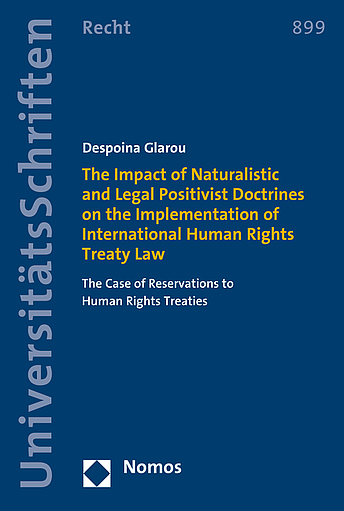englischThe concept of human rights has developed during the last 60 years mainly through multilateral treaties as a positivist branch of public international law. However, key positivist doctrines such as pacta sunt servanda or state sovereignty pose significant obstacles to the effective realization of a modern human rights regime. The universal, inherent and inalienable nature of fundamental human rights, deriving from their natural law origins, are often set aside by such doctrines and annulled. Through close examination of reservations to human rights treaties, this study sheds new light on the deep interplay of naturalistic and legal positivist doctrines on the progress and implementation of human rights law (CEDAW, HR Committee, ILC). It is argued that the positions of apex human rights bodies regarding reservations reveal that establishing a human rights concept within a legal positivist environment, without a systematic methodological foundation, endangers its basic sustainability.
Das völkerrechtliche Menschenrechtskonzept entwickelte sich in den letzten 60 Jahren hauptsächlich durch Abkommen als Ausdruck des positivistischen Zweigs des Völkerrechts. Allerdings stehen positivistische Schlüsselmerkmale wie bspw. pacta sunt servanda oder die Staatensouveränität einer effektiven Realisierung eines modernen Menschenrechtsregimes hinderlich gegenüber. Naturrechtliche Herkunft und Substanz der Menschenrechte wie deren Unveräußerlichkeit und Universalität werden dabei vernachlässigt. In diesem Spannungsverhältnis liegt die hier aufgearbeitete rechtliche Auseinandersetzung über Vorbehalte zu menschenrechtlichen Verträgen. Unter Einbezug u. a. der Stellungnahmen der Völkerrechtskommission, des UN-Menschenrechtsausschusses und des CEDAW-Ausschusses zu Vorbehalten kommt die Arbeit zu dem Schluss, dass die Etablierung des Menschenrechtskonzepts in einer rechtspositivistischen Umgebung ohne tragfähiges methodologisch systematisches Fundament deren Nachhaltigkeit gefährdet.



